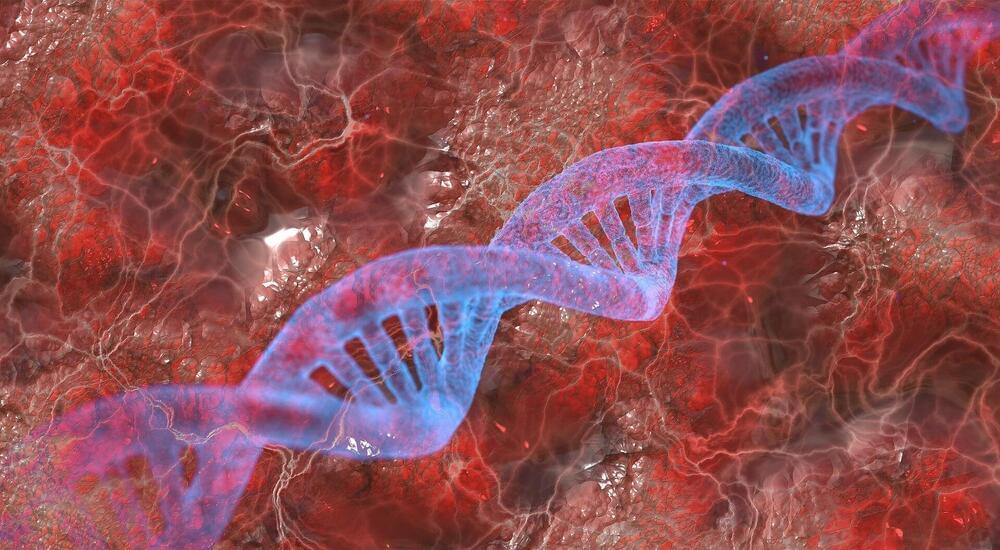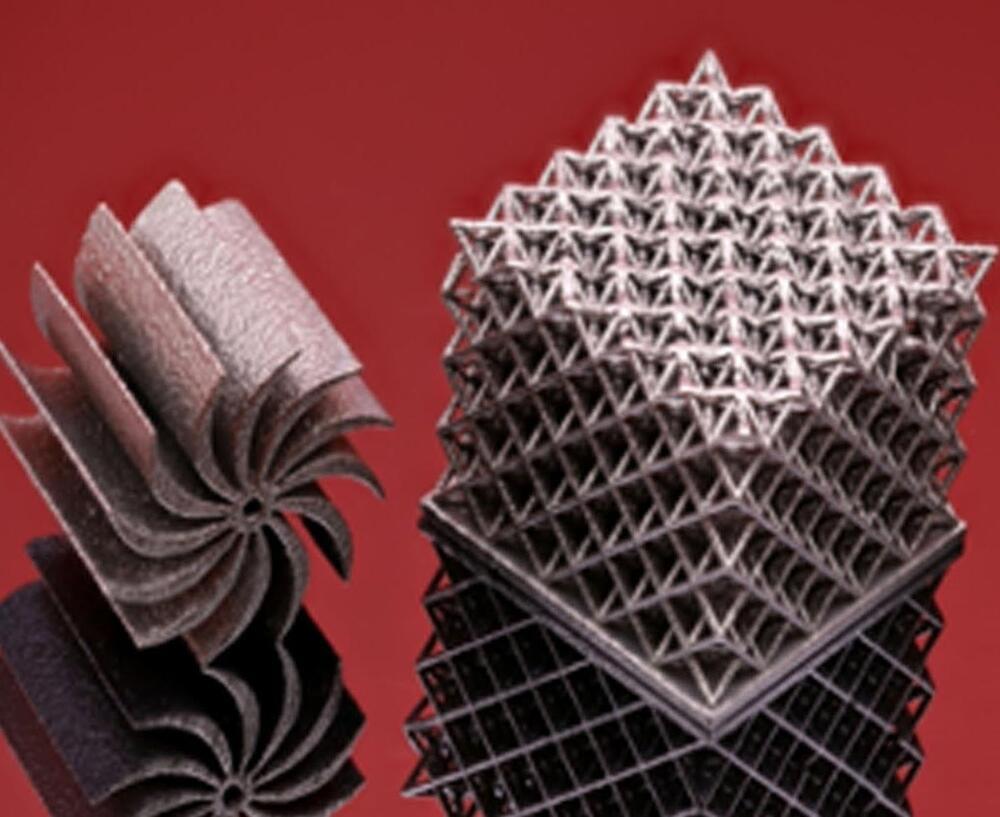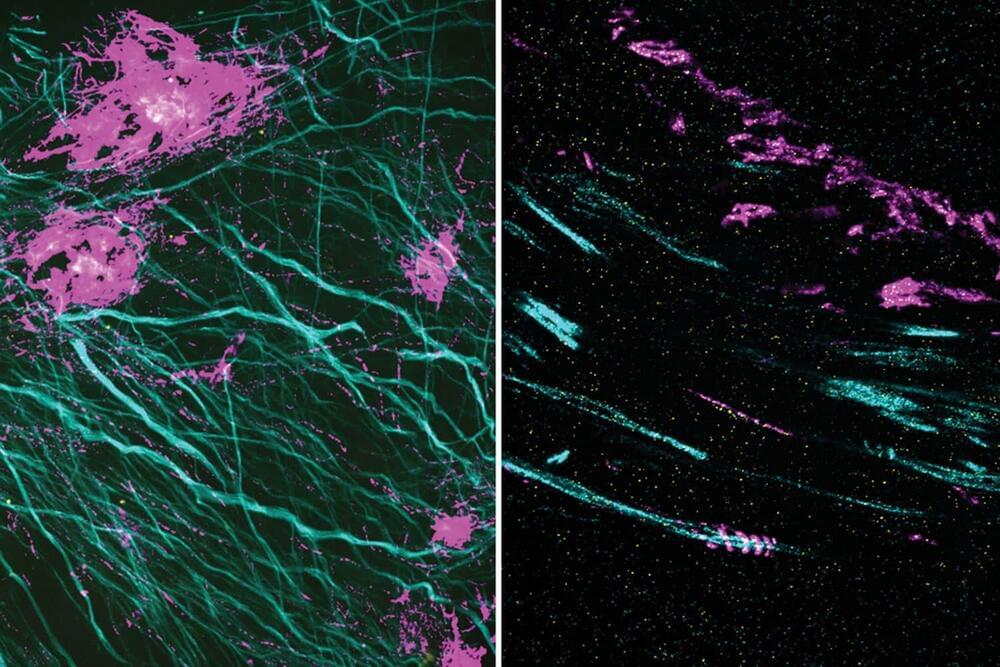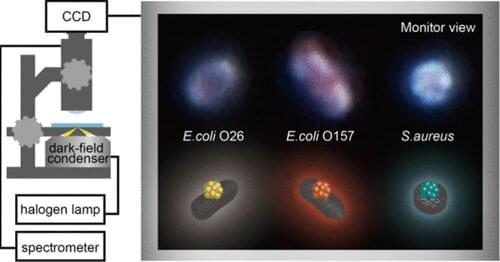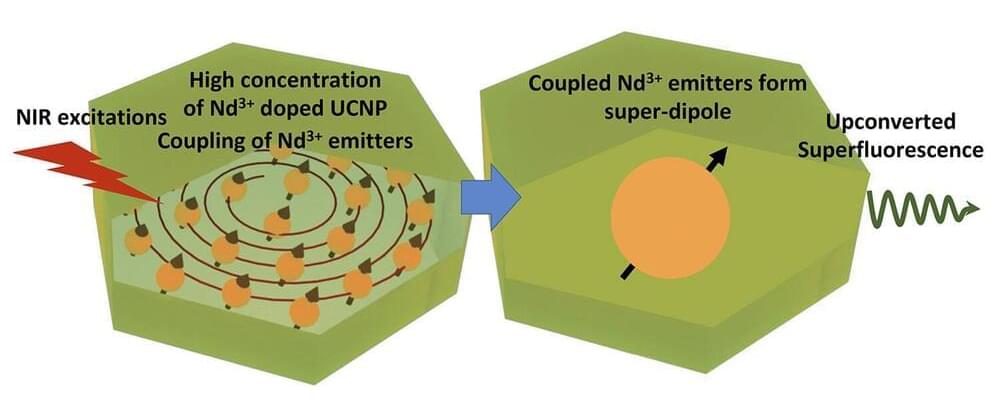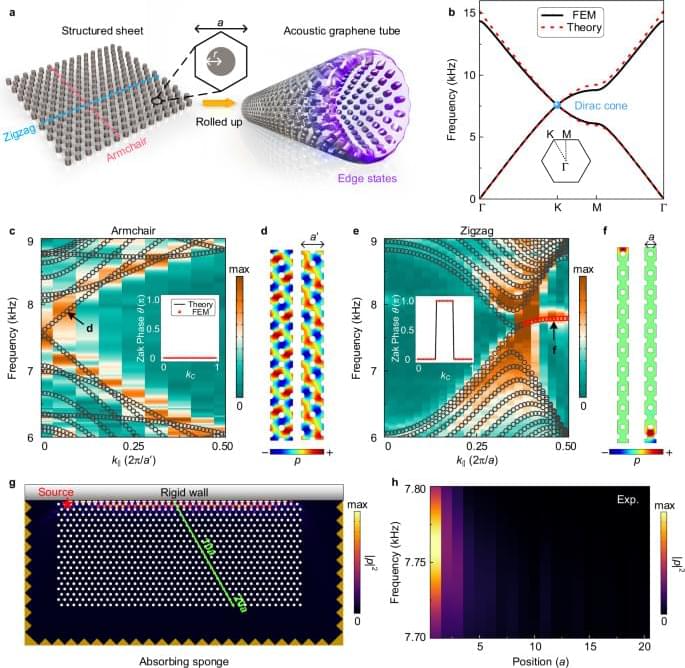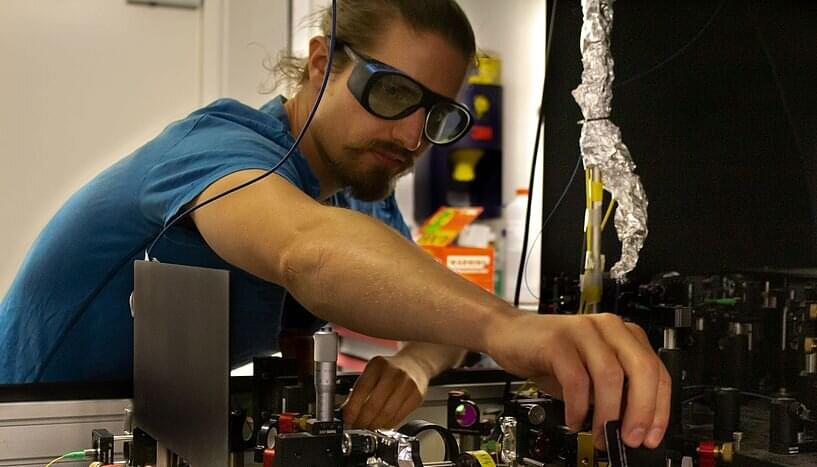A team of researchers at the University of Vienna, the Austrian Academy of Sciences and the University of Duisburg-Essen have found a new mechanism that fundamentally alters the interaction between optically levitated nanoparticles. Their experiment demonstrates previously unattainable levels of control over the coupling in arrays of particles, thereby creating a new platform to study complex physical phenomena. The results are published in this week’s issue of Science.
Imagine dust particles randomly floating around in the room. When a laser is switched on, the particles will experience forces of light and once a particle comes too close it will be trapped in the focus of the beam. This is the basis of Arthur Ashkin’s pioneering Nobel prize work of optical tweezers. When two or more particles are in the vicinity, light can be reflected back and forth between them to form standing waves of light, in which the particles self-align like a crystal of particles bound by light. This phenomenon, also called optical binding, has been known and studied for more than 30 years.
It came as quite a surprise to the researchers in Vienna when they saw a completely different behavior than was expected when studying forces between two glass nanoparticles. Not only could they change the strength and the sign of the binding force, but they could even see one particle, say the left, acting on the other, the right, without the right acting back on the left. What seems like a violation of Newton’s third law (everything that is being acted upon acts back with same strength but opposite sign) is so-called non-reciprocal behavior and occurs in situations in which a system can lose energy to its environment, in this case the laser. Something was obviously missing from our current theory of optical binding.
